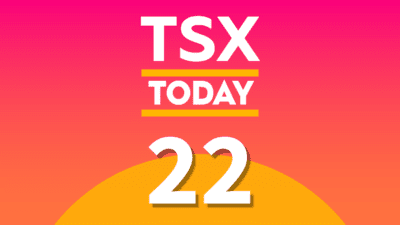It’s been a couple of months since Empire Company (TSX:EMP.A) CEO Michael Medline pulled the trigger on its $800 million acquisition of Farm Boy, the Ottawa-based regional grocery-store chain taking the GTA by storm.
At the time of the deal, I’d argued that the acquisition was a necessity because if Sobeys didn’t pounce, Loblaw (TSX:L) or Metro (TSX:MRU) would have.
Empire releases its second-quarter results December 13. All eyes will be on the progress of Project Sunrise, the company’s transformation plan that began in earnest in May 2017.
In the first quarter ended August 4, Sobeys same-store sales increased by 1.8%, excluding pharmacy, with a 15.6% increase in its adjusted earnings per share. It’s not spectacular results, but a step in the right direction for sure.
As part of Project Sunrise, the company plans to generate $500 million in annual savings by May 2020. In the Q1 2019 report, Medline said that Sobeys captured $100 million of the targeted savings in fiscal 2018, and it expects to find another $150 million in savings this year. That leaves $250 million in savings to be found in fiscal 2020 — a very tall order.
While savings tend to gain momentum as changes are made and fully integrated into a business, I’m skeptical Medline can hit $500 million. I’d suggest $400 million in annual cost savings is a more realistic figure. That said, $400 million over 36 months is pretty darn good.
Another plus is the move to discount
In 2018, Sobeys announced that it would convert 25% of its 255 Safeway and Sobeys stores out west into FreshCo locations, the grocery retailer’s discount banner over the next five years with the first two conversions expected to be completed sometime this spring.
The banner change makes a lot of sense because the Safeway stores were underperforming and the discount channel is where the growth is in Canadian food retailing.
Gross margins in the first quarter were 23.4%, 100 basis points lower than in the same quarter a year earlier. Medline believes that it’s turned the corner regarding some of its cost pressures; gross margins should move higher in the second quarter and beyond.
Free cash flow versus its peers
As it says in the headline, I’m not only talking about Empire Company and Sobeys in this article; I’m also comparing it to its two peers. One way to compare the trio of grocery stores is to look at each company’s free cash flow and growth over the past year.
Empire Company’s trailing 12-month free cash flow is $599 million, or 2.45% of sales. Loblaw’s is $1.9 billion, or 4.14% of sales, and Metro’s free cash flow is $413 million, or 2.98% of sales.
Empire Company’s free cash flow has grown 209% over the past 15 months, although most of the gains are from a 50% reduction in capital expenditures. On an operating cash flow basis, the company has seen an increase of 21% over the same period.
Not bad.
Over the last 21 months, Loblaw has seen its free cash flow and operating cash flow decreased by 16% and 7%, respectively. Over the previous 21 months, Loblaw has seen its free cash flow and operating cash flow decreased by 5% and 4%, respectively.
The bottom line on Empire Company stock
If Empire Company can continue to generate savings through Project Sunrise while also boosting the top line through organic same-store sales increases at Sobeys, Safeway, FreshCo and Farmboy, I would say Empire Company is the grocery stock to own heading into 2019.







